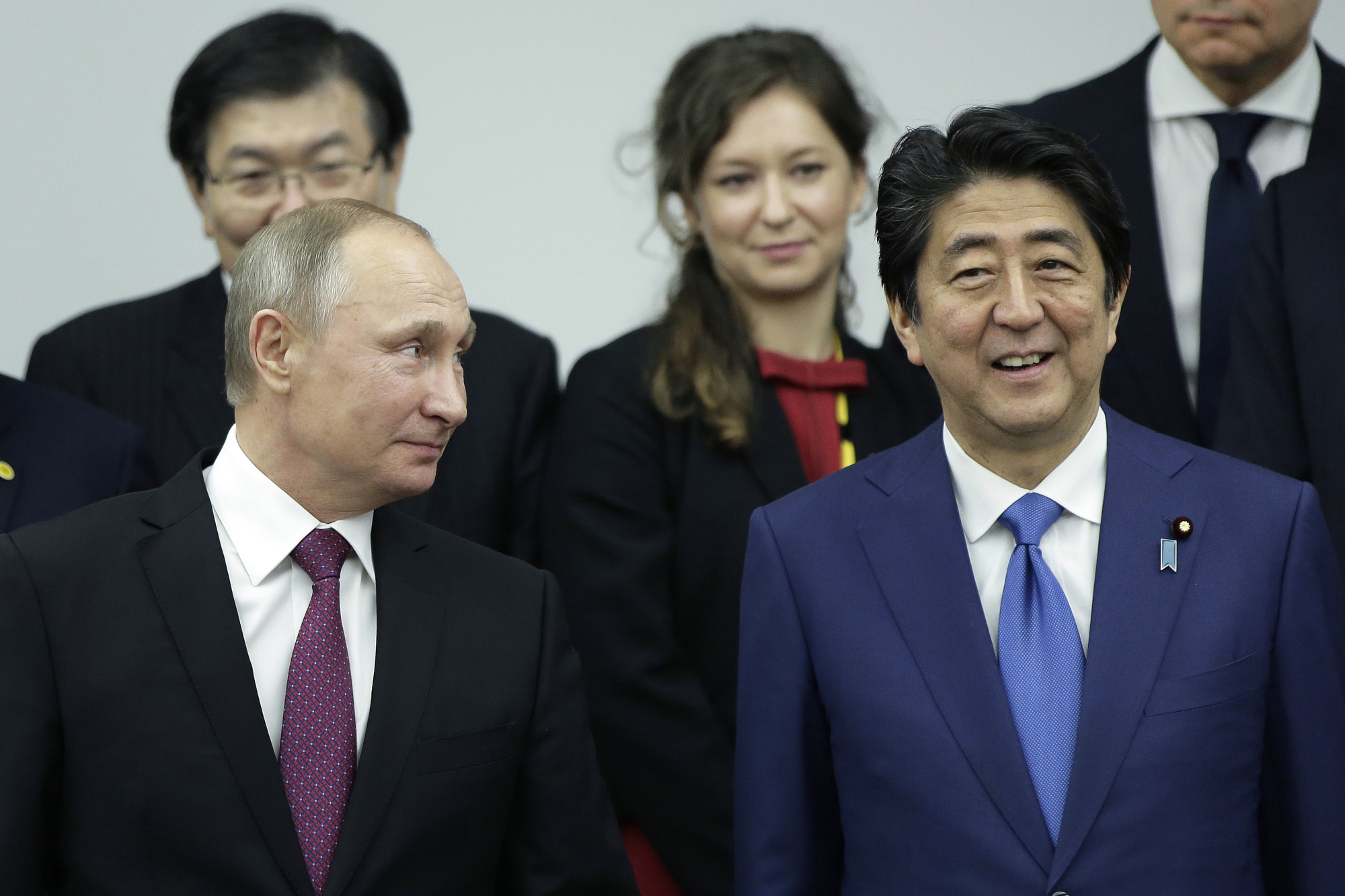The traditional overseas trip by the prime minister during the recent Golden Week break took place amid a land-sale scandal that involved Prime Minister Shinzo Abe himself, as well as a succession of other scandals that involved a number of his Cabinet ministers. Departing Japan, Abe's first destination was Russia. Following the "success" of the Japan-Russia summit in December last year, the stated purpose of the visit was to move forward with the agreement reached at that summit, toward a resolution of the Northern Territories issue, involving the question of disputed islands off the coast of Hokkaido.
So what really was the outcome of the Abe-Putin summit talks on April 27? As usual, the prime minister's office labeled them a "success." But what progress was made in discussions on the expansion of "visa-free" travel by former islanders to visit ancestral graves, and on carrying out joint economic activities in a form that does not compromise Japanese or Russian sovereignty over the Northern Territories, both of which were promised at the previous talks?
Regarding the issue of visits to ancestral graves, former islanders will be transported by air on Russian chartered aircraft from Nemuro Nakashibetsu to Kunashiri and Etorofu. In addition, a new checkpoint will be opened to facilitate entry to the Habomai islets, an area that was previously difficult to access directly. On the issue of joint economic activities, a Japanese-Russian investigative group will be organized to conduct an on-site survey.

















With your current subscription plan you can comment on stories. However, before writing your first comment, please create a display name in the Profile section of your subscriber account page.